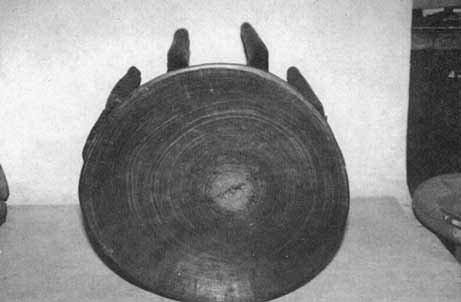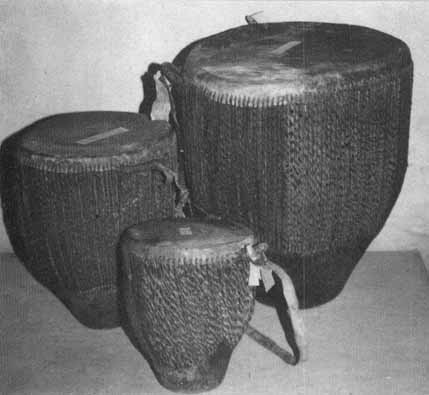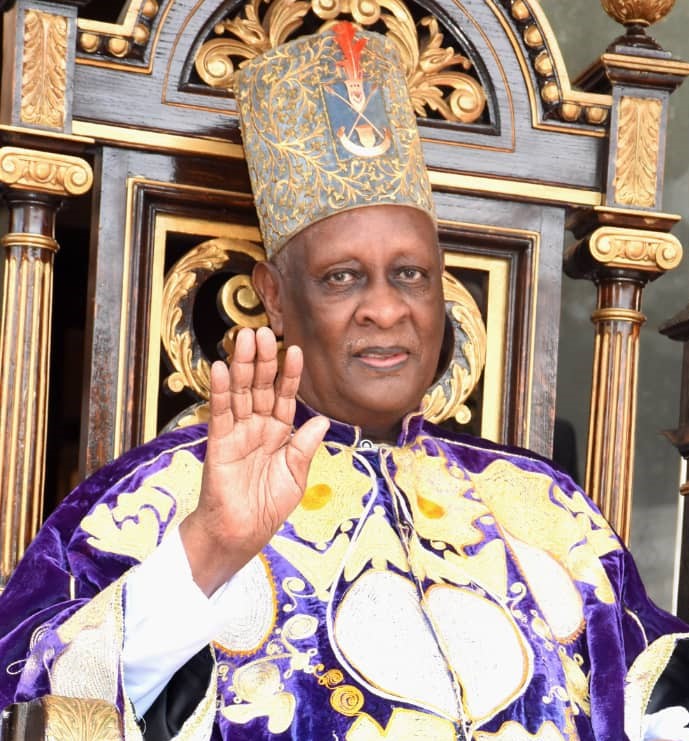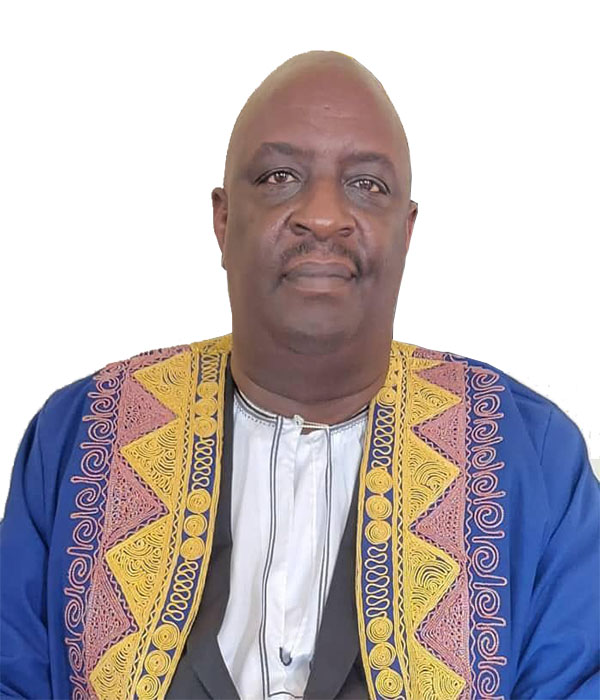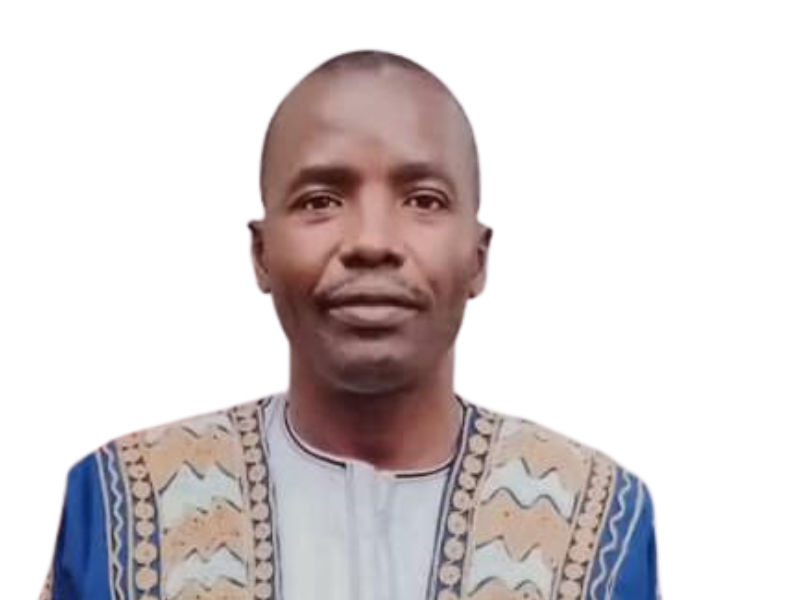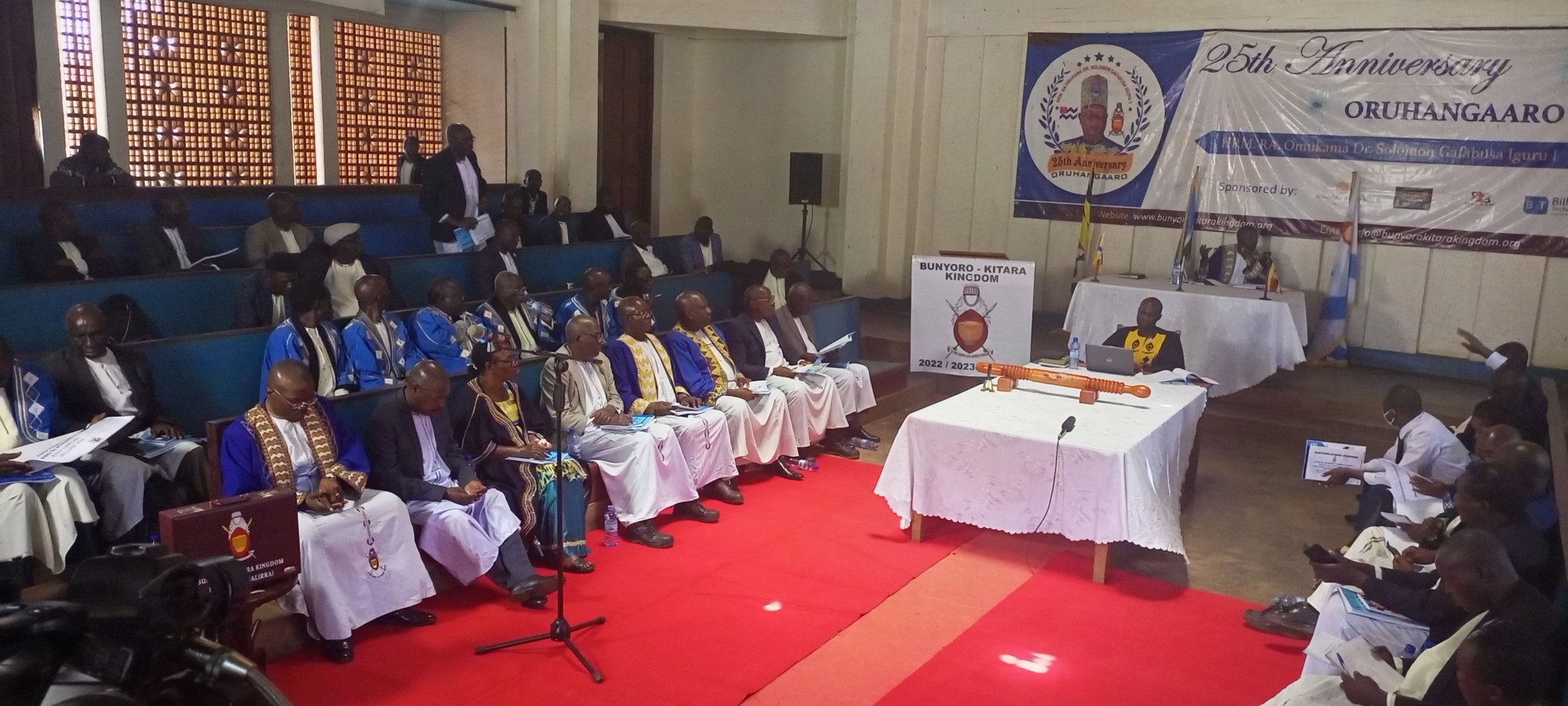- July 23, 2018
- Posted by: Communications
- Category: Bunyoro Culture and Heritage

After burying the body of his father or in another way defeating his rival brothers to the throne, a quite new enclosure used to be afterwards made in preparation for the new Mukama. A day for enthronement used to be arranged and declared. On the fired day, the people used first to wash the whole body of the nominated Mukama, cut his finger nails and be given vials, and shave his head. All these used to take place at the newly appointed Mukama’s uncle’s house, or in like manner at another chiefs house whose clan is entitled to the procedure. At about 3 o’clock in the afternoon, the group of chiefs and all the people take the Omukama in procession into the prepared enclosure. On arriving at the first main gate (Mugabante), just at the drum wound (or platform), the following people followed the Mukama:-
1. Bamuroga who at the time was Katikiro.
2. Nyakoka, the physician of the Basuli clan holding his stick called Binyonyo, and another minor physician.
3. Kasoira Nyamumara of the Batwaire clan.
4. Mubito known to be descendant from Mukama Nyarwa Omulirahaigura.
On passing through the gate called Mugabante, then the two mentioned physicians slaughter there on white bull and one white cock. At the same moment, the above mentioned Mubito prays in a loud voice saying: “Oh God of Gods Begetter of Kings, Oh, Creator of Heaven and Earth, I have brought this new Mukama to succeed to the throne of his father, but if you find him warmly and that he is not a real son and grandson of his forefathers, the Bakama, may he suddenly die, or may the drum fail to give out its sound when sounded so as to signify that he is totally null”.
After hearing these words the group of persons all around there pass over the flowing blood of the slaughtered victims. The Mukama then is allowed to enter the fence accompanied first by the Owisaza Mugema who, in old times was a head of all chiefs and was the chief Justice. After that he was followed by all other chiefs and people. On entering the royal house (Karuzika), before stepping over the elephant tusk laid down just on the threshold of the gate, again the aforesaid Mubito, together with the two physicians above mentioned, pray and say the same words as those mentioned above. The Mubito afterwards asks for an axe (Nyarebe) from Mulimba of the Basita clan. After getting it, the Mubito holds it and shows it to the Mukama who also knocks it with another tool nine times. The people during this event congratulate the Mukama with much pleasure. And then they bring a metal drum (Kajumba) to him. He also strikes upon it nine times while the people rejoice. After these events the Mukama is then allowed to pass over the said elephant task and entering the room he sits down on the royal wooden stool called Nyamyaro. From this moment he really becomes Mukama, and there is no further doubt that everything is in his hands. He is not allowed to speak nor to whisper during the whole night and besides this he is obliged to lie on one side of his body until its day lime. A guardian is placed there to watch him to see that he does not break any of these obligations.
HANDING OVER OF REGALIA TO THE MUKAMA AND THE CORONATION DAY CELEBRATIONS
On the very Coronation Day, the Omwambukya whose duly is to prepare the royal bath awakes the Mukama very early at about 3 o’clock in the morning. After awaking him he leads him from the house Kabagarama, to another main house Karuzika in which is kept the sacred spear Ruhango, and asks him to lie there on a bed until the day breaks. During the morning lime be leads him to the bath place (Kyambukya). Whilst there the Mukama sits on a stool called Kabwizi and Omwambukya bringing the water in a pot called “Rugaju”, pours it into a wooden vessel and afterwards the Mukama begins to wash his body. After having taken a bath the Mukama then proceeds from there to the former house Kabagarama and sits in a very nicely prepared place. The maid in charge of the house and who belongs to the Bakopi clan brings water in a vessel with a lid on it, then the Mukama starts washing his face. After washing the servants bring the garments of barkcloth. The Mukama then removes those he had and puts on new ones. After dressing, the same lady brings a basketfull of beads and fastens them on the Mukama’s wrists and legs and on his neck. Then the Mukama returns to the Karuzika passing through several passages and appears in the front room. He finds the men who lake care of his regalia waiting to greet him there. Again in this room the Mabito of Nyarwa’s stock prays (his: “Oh, God, God save our Mukama, make him live long and make him advance in years, give him wealth and many children.”
During these ceremonies, the Kondo wearers i.e those given the right to wear the colobus beard and crown stand in a position of expectation at the platform ‘Mugabante’ with the drum placed just on the top of it waiting to beat it in respect of the new Mukama. Very many persons in addition to Kondo-wearers also stand round the platform such as Ntimbo drummers, flute players, rake holders, torch hlolders, grain seed keepers, keepers of the axe Kararamaire and horn blowers.
THE MUKAMA’S OATH ON THE INSTALLATION DAY
During this ceremony, the Mukama is first made to swear. The Mukama is First handed a towel’ then the Bamuroga, Mugema, the Mubito, the Kasoira ( a physician) other chiefs and the ladies/Iremera in charge of the bed-chamber and Nyaraki in charge of Kapanapa, and another lady of the Baibira clan who looks after the dairy, make the Mukama swear that he will never frighten his nation, he must rule his people peacefully, he must admit foreigners to settle in his county, he must equally love his subjects however poor they may be, he must look after the orphans, and he must justly settle disputes. When swearing the Mukama lets fall the towel once at the end of every clause. When these are over the Mubito then pours the consecrating oil on the Mukama’s head. The oil is kept in metal vase made in shape of a horn. By anointing him with the oil the Mukama is therefore consecrated. The oil is obtained from a tree known as Ojwangi. Then they put on his wist a ring called Ziriboyo and Rwendoro on the neck.
When the lady of the bedchamber of the Bakwonga clan brings a basketful of some grains mixed with sim-sim and some sort of wild leaves and flowers (Orwihura, and Omuhabura and Kasekera) and hands them to the Mukama. The Mukama then picking them out scatters them four times by throwing some to the back and some to his front.
When these are finished, the Mubito then proclaims the Mukama by the royal name and other dignitaries (Mpako), then he puts the hereditary crown called Rwobusungu on the Mukama’s head nine times. An assistant called Muhesera also brings several other crowns and puts each at a time on the Mukama’s head and lastly he puts the proper crown called Kasusunkwanzi on the Mukama’s head and leaves it there.
Another assistant called Mujwiga bringing sandals called Biganja puts them on the Mukama’s feet and the Omuhagane man hands the Mukama the spear called Kinegena. This spear signifies this: “You have been put in possession of your country should any person despise you, kill him.”
Abebirongo of the Basonde clan hands the shield called Bisegege to the Mukama which means the whole nation is in his hands and it is his duty to preserve it from war.
Omusekura of the Banywagi clan hands a dagger called Busitama to the Mukama which also means that the Mukama must protect his country and settle cases justly as well.
Omusindizi then hands the stick called Kaliruga to the Mukama. This means that though he may be the Mukama he must take care not to kill anyone who perhaps vexes him in a trifling matter, but he must punish him by beating him with a slick. The same man also hands the whip to the Mukama which also has the same meaning as a slick.
A man known as a Mutamura hands a thin long staff (Kajunju) or a cane to the Mukama which, denotes that he must punish the people for minor offences by beating them with it.
Another man called Muhamba Nyamugoya hands to the Mukama a quite new hoe called Empese which indicates that he has become father of his people and that all persons must cultivate and must see that food is grown in order to avoid famine.
The man Munuma then comes holding the bow known as Nyampogo and quiver known as Ndayampunu. This signifies that the Mukama must proceed at once against any foes in his Kingdom.
Another man Musindizi hands to the Mukama a bag made of leopard skin which is called Rutanga. This means that he must trade and become rich, and that also he must teach his subjects to trade as well.
The Muhesera man then hands to the Mukama a wooden whistle and another made of bamboo. It means that if the Mukama hears the people sounding the alarm whistle he must go to the war. On the other hand, the Kasisi (a dried plant used as a decanter or vessel in which water is put for drinking and used as a glass denotes peace.
When all these rites are performed, the Bamuroga then sends word to a man Kakahuka of the Babwitwa clan at the mound outside the fence and orders him to raise the alarm. Kakahuka raising an alarm shouts: ” You enemies, you witches, you barbarians, why do you disobey this brave Mukama?”
In the meantime the man of the Basita clan immediately beats the drum whilst standing at the summit of the mound and all people make a noise in honour of the event.
The other men stretch mats along the path. They lay them from Karuzika to Omurugo stretching them through many small limbs named Mucwa, Kyakato, Kyamunuma and Komuruweyo and Komuruweyo. From Kamurweyo only papyrus grass is laid right through Kitogo to Omurugo, where the men called the Baswata have already hung up a mat Mukanaigura to make a canopy. Two calves, a heifer and a bull are found there too, with the cattleman called Lingiro who has prepared a smokefire for them.
After the ceremonies described above, the Mukama leaves the stool Nyamyaro. He meets a lady of the Bakwonga clan holding a basket full of dried coffee berries and another plant known as Rugusa, which the Mukama lakes before stepping over the tusk.
He takes out two male coffee berries and two female ones wrapped in the Rugusa and chews them. He keeps the tusks in his hands and then steps over the tusk. Then he meets a Mubitokati called Kabatongole whom he finds holding red clay. Kaolin and ordinary earth, and a wooden mould full of water drawn from a well at Mubende Hill which formerly had been used by Mukama Nduhura of the Bacwezi race.
The Mubitokati then mixes the above article into the water and smears each of the colours on the Mukama’s checks near the ears. She first of all anoints him with the red clay, and then with the Kaolin, and lastly with the earth. After doing so, she then dips the gathered wild flowers and leaves already referred to in the water in the mould and then sprinkles the Mukama and the other people by way of bestowing on them a blessing. Whilst sprinkling she calls on the names of the Bakama of old and says: ‘This throne belonged to your father (mentions the name) and to your father. “You have now inheited their seat called Tibamulinde, May it bring you, success.” Holding the gathered wild flowers and leaves she again says that she wishes him blessing and prosperity, to have as many children as possible, to be wealthly, to save his Kingdom and people and that God may favour him. When speaking these wards she closes her eyes and she opens them when they are over. Then the Mubitokati is told to choose a part of land which she prefers to reside in, the Mukama then sends her there after finishing the ceremony. He orders the chief of that region to erect for her a dwelling with a fence round it. He also gives her many presents such as cattle, male and female servants. From that time this Mubitokati never returns to see the Mukama until his death.
Then the Mukama utters these words. “Oh Nyarwa who eats in the heavens, letting the bones drop down, I pray you to make me live long and advance in age, to give me wealth, to give me many children, to help me in defeating ther nations and to leave me in peace.”
After concluding this prayer the Mukama, then proceeds to Murugo. He is led by a man entitled Nzini of Rwotomahanga (the grandson of Nyakwehuta of the Bayaga clan). Also Ntimbo drummers and flute players lead him. The group of other persons come after the Mukama praising him thus: Ha Kyaro, Nzaire ha Kyaro Lyogere, ba Kyaro mbaire, ba Kyaro Nyamunyaka etc.
On entering the hut, Mucwa, the Mukama meets there his head royal sister (known as Batebi or Kalyota) together with other Babitokati. On seeing him they all stand up in the meantime the Batebi or kalyota touches the shoulder of the Mukama. She touches it whilst he is standing on a calf’s skin, called Okwemerra.
Leaving this but he goes on and passes through another but called Kato. Before entering the next hut ‘Kyamanuma’ he meets a man representing foreigners, who produces an elephant tusk and two copper bracelets and shows them to the Mukama. The Mukama touches them. (It denotes that the Mukama is the head of all rain-makers, and that in case the rain fails to fall he may ask for rain from God that his people may be saved from a serious famine).
After passing through the hut, Kyamunuma, the Mukama meets in the yard a man holding the sacred spear ‘Kaitantahi’ the bow ‘Nyampogo’ and two quivers Nyamyezi and Nyamirima. These mean that the Mukama is guarded from enemies by means of them.
After leaving there, he passes the hut Kamurweyo and arrives at the hut Kitoyo where he finds the Baswata. They pass their hands over his garments as if they are clothing him; and then he reaches Murugo and stands under -the canopy. Whilst there the Abeganywa bring to the Mukama some spears which they get from the hut, Rwemigo. They hold them towards him. Then another man Mukumirizi stands below the Mukama and shouts to the Kondo-wearers, Babito and to other people warning them that the Mukama is already in Murugo.
As soon as they hear this, all Kondo-wearers immediately put on their Kondo crowns on their heads and move towards the Mukama to salute him and to give him some presents.
One man goes through the form of accussing another for two debts as if they are in court. The Mukama settles the cases, quickly and symbolically. He who wins the case thanks the Mukama by kissing hands. Then every Kondo-wearer approaches; and kisses his hands, which means that they realise the distinction bestowed upon them because some of the Kondo-wearers arc chiefs, and some are caretakers of the regalia. After this ceremony the Mukama then goes back to his house. On the way he stops for a moment at the hut Kamurweyo, then a Mujaguzo man named Musita beats the drum four times; and Kakahula of the Babwijwa clan again raises an alarm repeating the same words as those described before. Then another man of the Bahisa clan holds the shield Mugidu which is believed to have belonged to the original Mukama Rukidi. He waves it as a sign of pleasure. The Mukama then goes on as far as to the royal house Karuzika returning there by the way he came. But at this time the drums and the people do not pass through the huts as before, they accompany him by passing outside them. On reaching Karuzika the Mukama, alter stepping over the tusk, meets again a lady of the Bakwonga clan awaiting him there having already spread a white calf skin upon which he must stand. He then gives to her the coffee husks which he bad got from the coffee berries he had chewed on his way to Murugo as explained above. When this is over, he then sits on the stool Nyamyarro. Omuhesera comes and takes the crown off from the Mukama’s head, puts it on the Queen mother’s lap, and then takes it from her and puts it away in its proper place.
The Mukama then leaves the seat and goes into another room of the same house. He finds there a lady of the Balisa clan awaiting him to give him some milk to drink. Whilst there the Mukama sits on a chair known as Kaizirokwera.
He does not drink the milk immediately, but he first sips it nine times and then at last drinks it up altogether. After drinking, the lady hands to the Mukama a towel with which he wipes his mouth. Also she gives to him another towel with which he wipes his hands. Afterwards the Mukama remains there for only a few minutes lying on a bed. He then goes and sits on Kaizirokwera. At this moment another lady of the Baitira clan producing a butter bowl called Nyamutungo elevates it nine times in the presence of the Mukama. By doing so she conveys the symbolic meaning that such a bowl was put in her charge by Bacwezi Bakama, their predecessors, and after their disappearance she guarded it for the Babito-Bakama his ancestors, and that she claims that she is still its keeper for the present Mukama. Also she produces a basket called Kaguli which she elevates to nine times and which action also has the same sense as that in the case of the butter bowl.
After this ceremony the Mukama then goes out of this room and takes his seat on Nyamyarro, in the throne room. Immediately the Mpango drum is beaten at the threshold and the Kondo-wearers are called out from the hut Mucwa to come and approach the Mukama in the Karuzika.
Then both the Mubito who is said to be a descendant of Nyarwa, and Bamuroga announce to the gethering this: “Now know that this is your new Mukama, and the same is the descendant of the first Mukama Rukidi Mpaga, everyone must obey him, but whoever shall disobey him shall be liable to be killed, or he shall be exiled.”
When the announcement is over, then the Mubito proclaims to the people what new official name the Mukama has taken and his other dignities (Mpako). Then after that the multitude stand up and greet the Mukama thus: “Engundu zona Okali, Kahangirize Wamara, Kahangirize Agutamba, Kahangirize Nzaire, Kahangirize Nkyamungi etc.”
When this is over, the drummers hand to the Mukama the principal drum Mpango Tibamulinde which he beats in nine different rolls. Then they give him other small drums too and he strikes them, beating each in four rolls. A man of the Bakurungo clan then brings to the Mukama two long trumpets Nyamalya by name which are said to have been possessed by Mukama I.M. Rukidi: He hands both to the Mukama four times. It is said that Mukama I.M. Rukidi was using them when hunting in Longo at the time when Nyakoka and Karongo found him there to inform him of his succession to the throne, and the Mukama after being informed that he was nominated to be Mukama, ordered these trumpets to be ornamented with beads.
Then after this event, a man Mujwiga who takes care of the bow Nyapogo and quiver Ndampunu brings them to the Mukama. The Mukama then draws out only four arrows and begins to shoot towards the comers of the world. With the first arrow he shoots Eastward (i.e towards Buganda, Busoga, and other tribes of that side), with the second- he shoots Westwards (ie. towards Bulega in the Congo); with the third he shoots southward (i.e aims at Ankole, Rwanda etc); and with the fourth he shoots Northward (i.e he aims at Bukedi, i.e Acholi and Lango etc,). He indicates that war shall be prevented from coming from any of the quarters towards which he has shot an arrow.
Then the Ntimbo drummer brings his old drum Mutengesa which formerly had been possessed by Bacwezi Bakama and hands it to the Mukama. This signifies that whenever the people hear the sound of this small drum, they at once know that the Mukama is roaming about in his enclosure.
After this, then, the Mujwiga drummer and his companions holding long durms called Tomuju or Namagaija come before the Mukama and play their drums. These drums have the same meaning as that of Ntimbo. At the same time the other drummers beat the little drums (Amahurru and Obwana bw’engoma). The Abahaimi bring the sacred spears : Mahere Kimuli, Kaizireijo, Mutasimbwa, Gotigoti and others and slope them towards the Mukama. It means that the Mukama’s forebearers, the Bacwezi and the Babito, have defeated all other nations, and that in case he likes to attack other countries, they will guard and help him.
After this, another man of the Bukalari clan brings a hammer, and another one brings a stone anvil called Oruhija and they place them before the Mukama and he then hammers some iron four times. By this action it means that he is the head of all blacksmiths. This hammer is the tool with which he hammers the spears for war and hoes for his people to cultivate with. Another meaning is “May the Mukama all his days be strong and endure like this hammer which cannot be spoilt or broken by any man”.
In the meantime, a man of the Batwaire clan called Katoira, the physician, comes and squats in the doorway in front of the Mukama. Then the Bamuroga on the other hand brings a pipe Kyoma and gives it to Kasoira who smokes it in the presence of the Mukama. By this pipe the Mukama commemorates the power and dignity which his ancestor Mukama Rukidi bestowed upon the physician. Because this soothsayer had explained to Rukidi the reason why the Bacwezi Bakama disappeared from the country.
After this, then the Nyakoka of the Basuli clan brings to the Mukama the Binyonyo stick and four knives, vis: Kabutika, Kyeraigongo, Nyamahunge, and Kyebagira, and he hands them all to the Mukama nine times, saying the royal salutations.
In this action, Nyakoka represents the original Nyakoka the physician who was a doctor to Mukama Rukidi and who had prophesied how Rukidi was going to become Mukama.
A moment after, Kadongolima, chief of Matiri of the Bakwonga clan, comes wearing his Kondo-head-dress made of feathers and tops slightly on the Mukama’s shoulders and afterwards salutes him: ‘This Kadongolima represents the old Kadongolima who at that time was a chief of Matiri and who belonged to the Bakwonga clan, and was husband of the sister of Rukidi.
Some other ceremonies are performed, but which are unnecessary to include here.
When all these are finished, the Mukama goes into the dressing room to change his garments. After wearing other clothes he goes and sits at the third gateway, Ihudiro, at the back of the enclosure where the lady Nyaraki is in charge. Then all the ladies of the royal houses bring baskets containing beads, emblems, lions, and leopard claws nicely ornamented, which are put on by the Mukama. After receiving these presents he then returns to the dressing room and re-changes his vestments, and then returns to the throne room.
At this time the Mpango and other drums are brought from Kyawairindi to the threshold. Then the chiefs, Babitokati and other persons who are not Babito approach and sit by the Mukama. Then a Mujaguzo drummer begins drumming after which he gives it to the Mukama who also strikes it as many times as the former did and gives it back to the drummer. The former again hits it in four rolls whilst Kakahuka raises the alarm and a man of the Balisa clan waves the shield Mugido about. Then the Musita drummer sounds four rolls, and on the fifth he beats the Irambi song and all the drummers and musicians proceed back to the courtyard Kyawairindi, and the Mukama retires. During this interval the people who live in the Mukama’s enclosure to perform services begin to have their meals.
At 3.00 O’clock in the afternoon, the Mukama again undertakes other ceremonies. He first goes to the dressing room and puts on other clothes. He moves, again to the Murugo called Kyawairindi where he finds a seat Kabwize already arranged for him to sit on. This seat is taken care of by the Bambukya, who dress him. The drums are also rebeaten as explained in the preceding lines. The Kondowearers, the Babitokati and many other people assemble there and begin to dance accompanying the instruments. Presents to the Omukama are made. He remains there at least for one hour and then goes back to the dressing room to change his garments and then after changing he comes and sits in the throne room.
A young boy of about 12 years of age, brings some of the sacred milk cows raising all alarm in order to warn other people to get away to create passage for the cows. When this boy grows up he ceases to do this work, but another one of the same age is selected to succeed him in his office. But the former heads other Kraals. Such a boy is selected from the following clans: Balisa, Basambo, Basita, Baitira, and Bayaga. In raising an alarm the selected boy calls out: “Erakafa efe, erahendeka ehendeke, Omwenzi wabyo aliyo” which is interpreted. ” If one dies let it die, if one breaks a bone let it break, provided the owner is there.” Another man upon seeing the cows coming, at once spreads a mat upon which they stand when being milked. Two ladies one being of the Baitira clan and the other of the Balisa clan, after smearing their bodies with Kaolin assemble, one holding an old horn containing water, a brush for driving away flies, and a cord for fastening the lower legs, the other holds an earthenware bowl. A man of the Mugombirwa clan fastens the two back legs, the milkman, who is one of the caretakers of the sacred spears begins to milk. The bowl Nyamusika is filled, but the milkman has to take great care against dirtiness and dust in the milk. The milking man and the two ladies are all of them entirely forbidden from having any sexual intercourse during all these days. They are obliged to appear happy all the time and are strictly forbidden to cough or sneeze.
When all these are over the Mukama takes his meal called Nyakabito. A man named Nyakabango of the Bakurungo clan with his companions serve it. They wear new clothes and are smeared with Kaolin. One of them serves the food cleanly wrapped in two bark-cloths, and the other serves a wooden vessel containing food and water marere covered with nicely painted lid. Another brings a wooden bowl containing long pointed pins and knives and another a small water mug. All these things are wrapped up in bark-domes. Before serving them, a man called Nyakabango first gives to the Mukama a moistered towel which the Mukama takes and with it rubs his hands after which Nyakabango gives him four long pins and two knives placed on the towel.
The Mukama then takes one of the four pins and a knife and cuts the meat in small pieces. Before eating he first casts one piece on the right hand side, and the second one on the left hand side, and the third he casts to the back, and the forth he casts before him. After doing so he afterwards cuts nine other pieces for himself to eat. After he has finished eating the man Nyakabango again gives him a moistened towel to rub his hands with. After rubbing them he takes a glass of water to drink. Then Nyakabango knocks at the door to warn the people that the meal is now finished. The Nyakabango announces to the Mukama that his post is a hereditary one from the time of the first Mukama Rukidi up to date and at the same time swears before him that he agrees to continue to fill it during his reign. The Mukama agreeing to this promise orders him to return very early and kiss his hand (a sign of thanks giving) in the presence of all chiefs. When this is over the Mukama retires. The Accession celebrations conclude.
